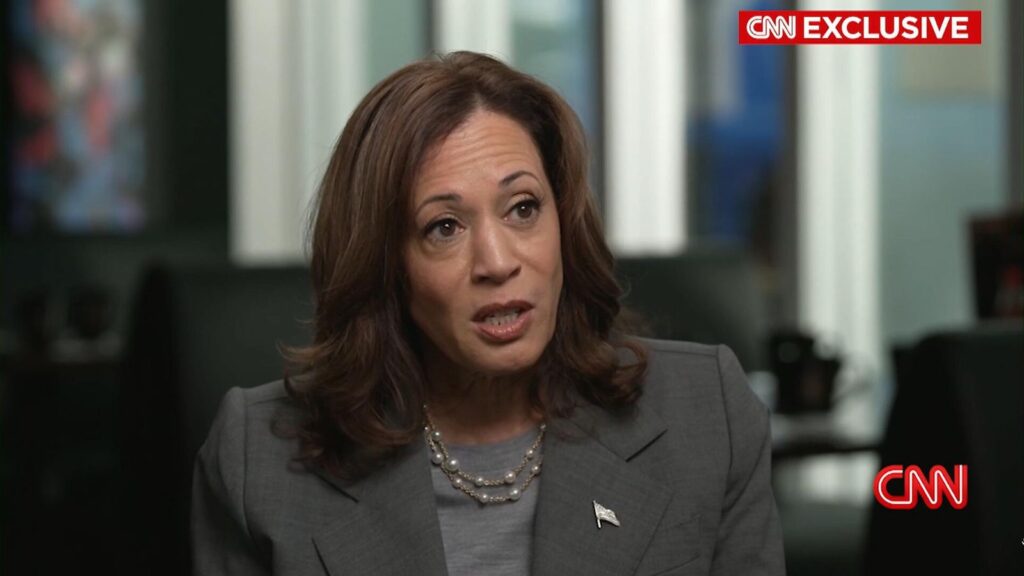The New York Times criticized Vice President Kamala Harris and MSNBC host Stephanie Ruhle following their 25-minute interview broadcast on Wednesday night, labeling it a missed chance for a more rigorous and substantive discussion. As Harris’s first one-on-one cable TV appearance since becoming the Democratic presidential nominee, the interview has been faulted for its lack of tough questioning.
During the interview, Harris reiterated themes from her recent pro-business economic speech, portraying herself as a champion of the middle class. However, The Times reported that she frequently avoided direct responses to questions about her plans and the challenges she faces. This pattern of superficial interviews has raised concerns among observers about when a more probing and meaningful dialogue might occur.
The NYT article highlighted that Ruhle’s questions, which had the potential to spark a more in-depth discussion, were often met with evasive responses from Harris. For instance, when asked why former President Donald Trump continues to poll better on the economy despite only minor improvements under the Biden administration, Harris avoided addressing the core issue.
Instead of explaining why voters might prefer Trump’s economic policies, she criticized his record, inaccurately citing job losses and the negative impact of tariffs. The NYT noted that Harris did not provide a substantial explanation for why her administration would be more effective in addressing economic concerns.
“If you are hardworking, if you have the dreams and the ambitions and the aspirations of what I believe you do, you’re in my plan,” Harris responded in an attempt to reassure voters. However, the NYT was unconvinced, critiquing Harris’s responses as lacking clarity and evading crucial questions. The publication argued that this type of interview failed to provide voters with a thorough understanding of how Harris would govern if elected president.
A significant moment in the interview addressed the possibility of Democrats losing control of the Senate, which could severely restrict a Harris administration’s ability to pass major legislative proposals. When Ruhle brought up this concern, Harris again avoided a direct answer, providing little insight into how she would handle such a setback. “We’re going to have to raise corporate taxes,” Harris said, never addressing how she would be able to do that without Senate control.
The Times added:
Since Ms. Harris began granting more interviews in recent days, her media strategy has been to sit with friendly inquisitors who are not inclined to ask terribly thorny questions or press her when her responses are evasive. Nothing about that changed during her interview with Ms. Ruhle before her audience on MSNBC, the liberal cable channel whose viewers overwhelmingly favor Democratic candidates.
It’s not quite clear what Ms. Harris gained, aside from giving her campaign aides the ability to say she held a one-on-one cable television interview. For the vice president, speaking with Ms. Ruhle was roughly in the same ballpark as Mr. Trump having one of his regular chats with Sean Hannity of Fox News.
For Harris, interviews like this offer an opportunity to showcase her key messages, but, as the NYT suggests, a more critical and probing interview is still lacking. With the need to solidify her policies and engage with a skeptical electorate, many believe Harris must confront more challenging questions. So far, such interviews appear more focused on presentation rather than substance, leaving voters with insufficient clarity about what to expect from a Harris administration.



